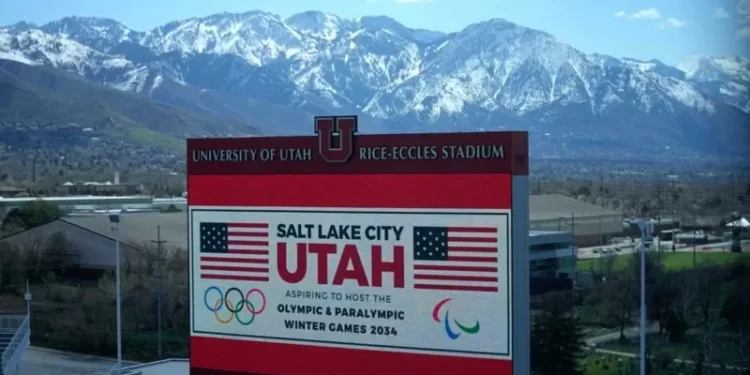Salt Lake City has officially announced its bid to host the 2034 Winter Olympics, and it comes with an estimated $4 billion price tag. This exciting news was revealed by the Utah Olympic Legacy Foundation and the Salt Lake City Mayor’s office, highlighting the projected costs to stage the premier winter sports event.
The bid includes both infrastructural and operational expenses and aims to bring the Winter Games back to the city after a successful hosting in 2002. While some may question the hefty price tag, local officials and Olympic organizers are confident in the economic and cultural benefits that the event will bring to the city and its surrounding areas.
The projected cost breakdown for the bid includes $1.3 billion for venue infrastructure and upgrades, $1.5 billion for operational costs, and $1.2 billion for additional expenses such as transportation and security. These investments will not only benefit the 2034 Winter Games but also serve as a long-term legacy for the city and its residents.
One of the main reasons for the estimated costs is the need to build new venues and upgrade existing ones to meet Olympic standards. Salt Lake City is no stranger to winter sports, and some of the venues from the 2002 Games are still in use today. However, with advancements in technology and changes in Olympic regulations, these venues require significant upgrades to ensure a successful and seamless event.
Furthermore, the costs include measures for sustainability and environmental responsibility, aligning with the Olympic values of promoting a better and more sustainable world. This includes utilizing renewable energy sources, implementing waste-reduction measures, and promoting public transportation to reduce carbon emissions.
The bid also aims to boost the local economy by creating jobs, increasing tourism, and showcasing the beauty and charm of Salt Lake City. The estimated costs will be offset by ticket sales, sponsorships, and merchandise, along with the revenue generated from increased tourism and economic activity.
The 2002 Winter Games generated $4.8 billion in economic impact for the state of Utah, and with the growth of the Olympic brand and global interest in winter sports, the 2034 Games are expected to surpass this. Additionally, the bid includes plans for affordable ticket packages to ensure accessibility for all and maximize attendance for the various events.
The Winter Games also bring a sense of unity and pride to the city and its residents. From the vibrant opening and closing ceremonies to the exciting competitions, the Olympics provide an opportunity for people from different backgrounds to come together and celebrate the love for sport and their country. This sense of community and pride is invaluable and leaves a lasting impression long after the Games have ended.
Salt Lake City is no stranger to hosting large-scale events, and its experience and expertise will undoubtedly play a significant role in the success of the 2034 Winter Olympics. The city’s welcoming and inclusive community, along with its stunning natural surroundings, make it the perfect location to host the world’s top winter athletes.
The bid has already received much support from the local community, including businesses, community leaders, and residents. The legacy of the 2002 Games is still evident in the city, and this opportunity to host the Winter Olympics once again is a testament to the city’s commitment to promoting and showcasing the best that Utah has to offer.
In conclusion, the Salt Lake City Olympic bid projects a $4 billion investment to stage the 2034 Winter Games. While the number may seem steep, the potential benefits to the city and its residents far outweigh the costs. The bid aims to create a lasting legacy, boost the economy, showcase the city’s beauty and charm, and bring the community together in the spirit of the Olympic Games. With its experience, expertise, and support from the local community, Salt Lake City is ready to welcome the world and host an unforgettable 2034 Winter Olympics.







